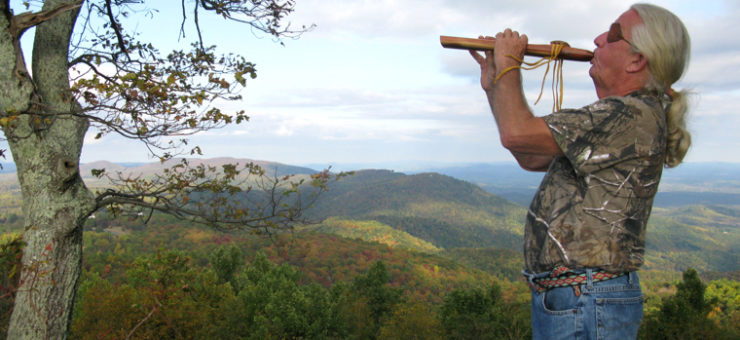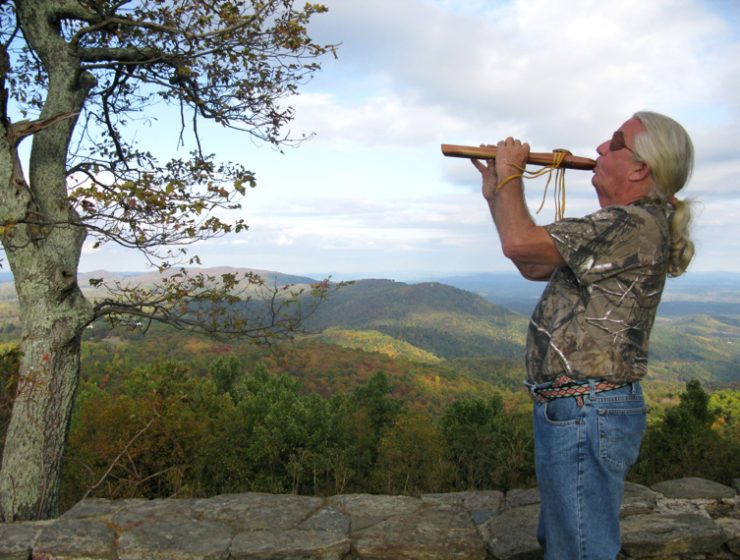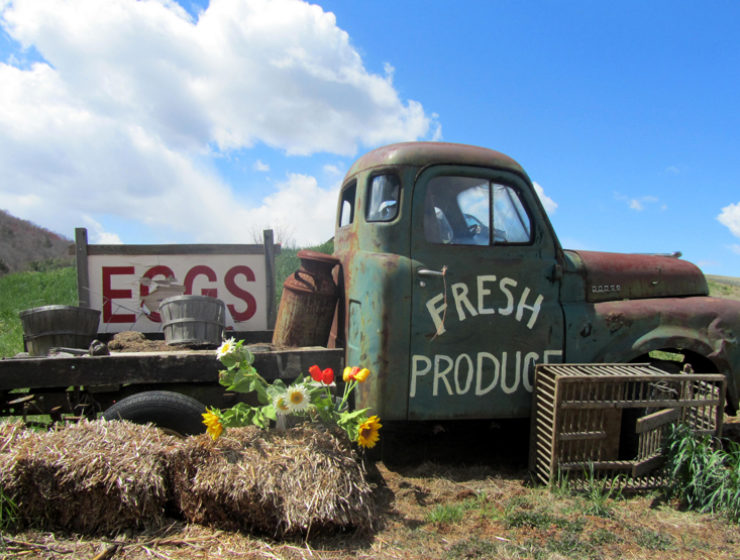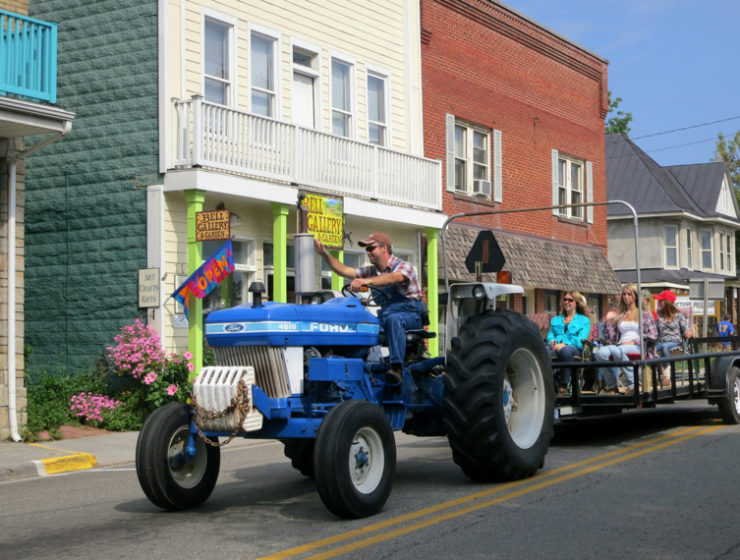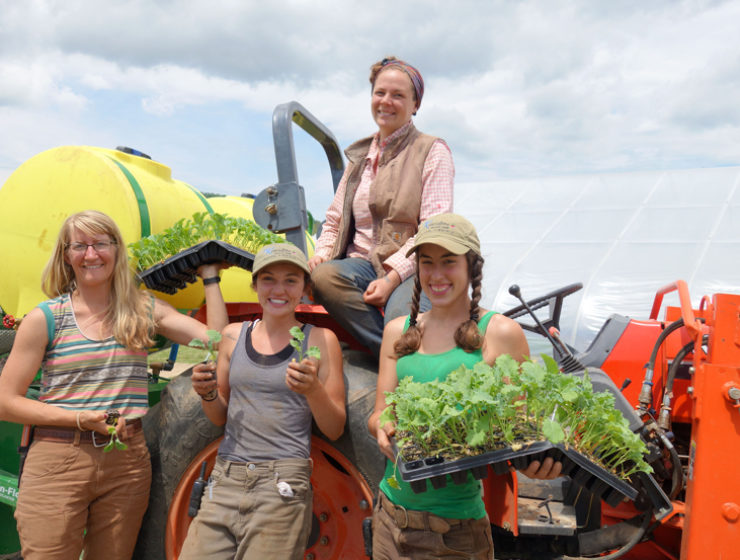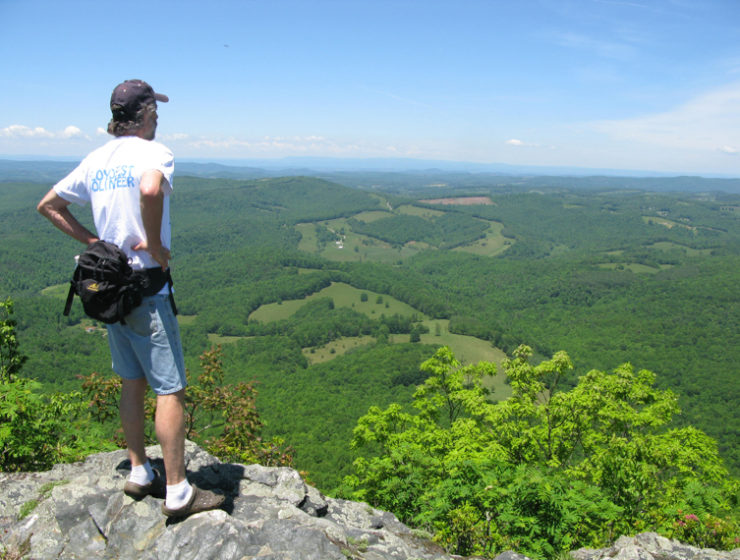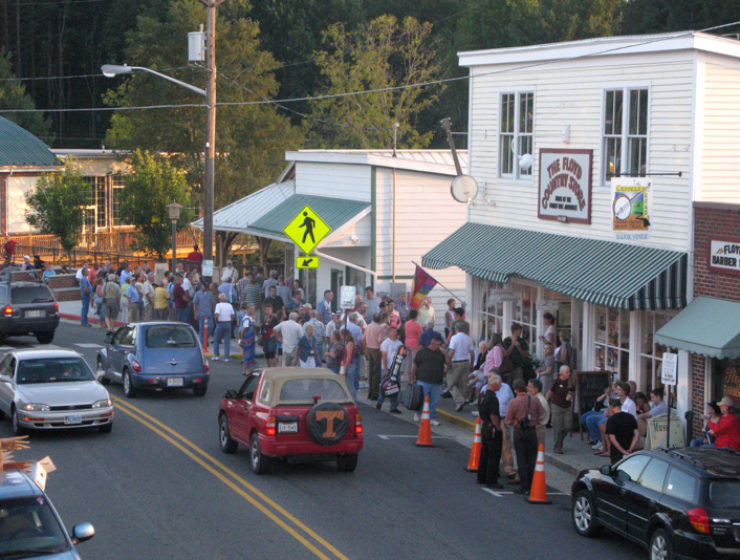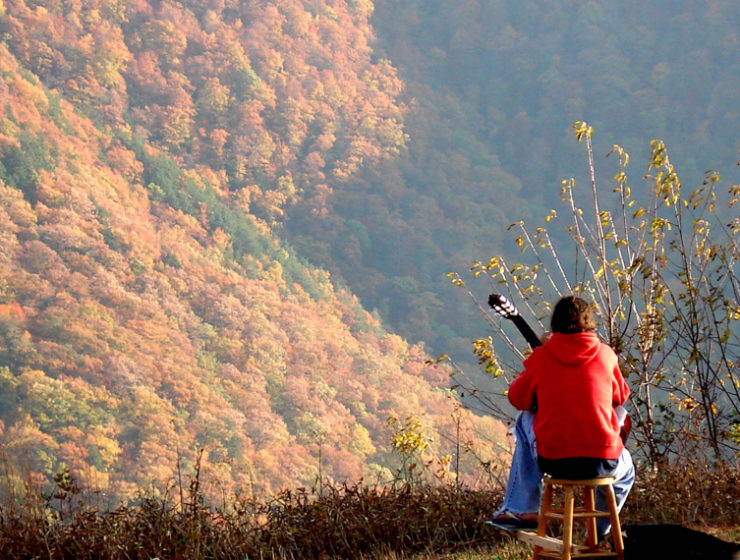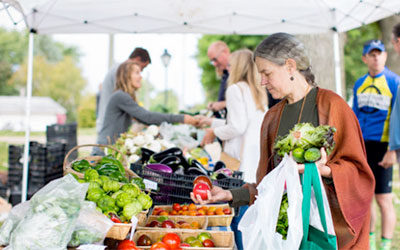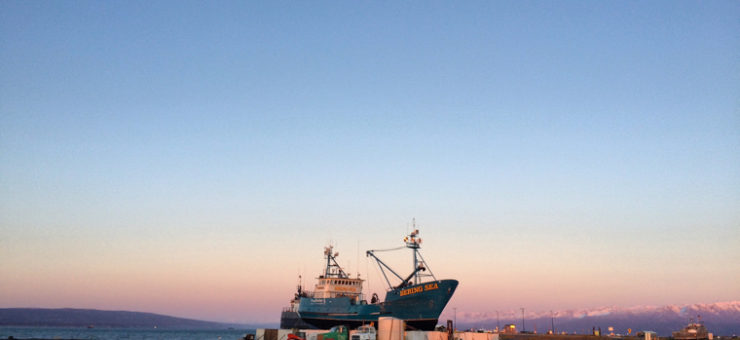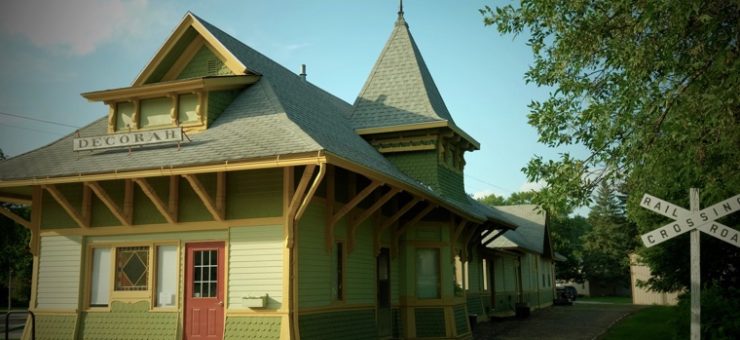I posed that rhetorical question in an essay called Homegrown that I read on our local Public Radio station in 2005. In the essay, I spoke about how Floyd’s family-farming natives and back-to-the-land homesteading newcomers had more in common than was originally thought when the newcomers began arriving in the county during the 1970s and ‘80s.
Both groups shared an independent spirit and an interest in providing basic needs in a homegrown way. “In Floyd we have locally famous artists, potters, wood-carvers, writers, and musicians, alongside well diggers, saw-millers, hunters, and home builders,” I (a poet who was publishing my own books) wrote.
Home-schooling gatherings and Floyd’s independent Blue Mountain School beginnings harkened back to the county’s one room schoolhouse days. Some “alter-natives” (a term coined by my friend Will Bason) built on the county’s agricultural foundations by starting organic CSA’s (Community Supported Agriculture). New communities shared land, held potlucks and barn raisings. New herbalists wild-crafted medicinal herbs, renewing an old mountain tradition. Many of the newcomers were artists and musicians, a good fit for a county rich in music and craft traditions.
After my radio essay was aired, I posted it on my blog, and a reader commented that Floyd must have been guided by inspired leaders. But the mix of cultures wasn’t planned, I told her. The migrations to Floyd had more to do with the beautiful Blue Ridge landscapes, privacy and affordable land.
“For the most part, we have the same struggles any small town does, keeping the chain store development to a minimum, striving to preserve the natural charm and being economically viable. You have to be creative to make a living here, which relates to the “homegrown” theme in the essay,” I responded.
But some planning has taken place. SustainFloyd is a citizen’s group that was formed in 2008 for the purpose of protecting and enhancing the natural, cultural, and economic resources of Floyd. Members launched the Floyd Farmer’s Market. They’ve hosted Tiny House and Solar House Tours, a film series and alternative energy and sustainable agriculture initiatives. In 2009, they brought Bill McKibben – the best selling environmental author and founder of the 350.org initiative – to Floyd to speak on local sustainable economy.
“Rural communities, once thought to be getting passed-by because they didn’t have four lane highways, hold the most promise for economic sustainability today,” McKibben told an attentive crowd of about 140. He explained that for a local economy to be sustainable emphasis needed to be on resiliency, rather than constant growth and speed, and on what economists call “comparative advantage,” “determining what your locality has that others are lacking and playing to your strengths.”
Along with McKibben’s “buy local” message, he emphasized loving one’s neighbor. “What’s most important is having strong communities where people can rely on each other,” he summarized. His words resonated with many in the crowd and validated why they came to Floyd.
Today, the old sewing factories have long been closed, but the buildings have been re-purposed. One houses a hand-painted women’s clothing store, a music venue, a Mexican restaurant and more, all family-owned. Tourism is strong and is one of the ways Floyd plays to its strengths. Music events are scheduled from Thursday – Sunday. Many overnight visitors stay at downtown’s Hotel Floyd, an eco-friendly boutique hotel where the Floyd-themed rooms have been decorated by members of the community.
The Floyd Country Store’s Friday Night Jamboree was one of town’s earliest draws, and still is. On Friday evenings the sidewalks and alleys overflow with musicians and friendly people, some of whom flatfoot along the walkways. The Jamboree started with friends pickin’ around the store woodstove and has grown to include a general store and café, Americana Afternoons, Floyd Radio Show (modeled after The Prairie Home Companion) and more.
But in Floyd, you’re just as likely to see free-style, flower child twirling on dance floors as you are to see flatfooting and clogging. At Dogtown Roadhouse, you can catch local musicians and special guest bands playing rock, blues, Americana, reggae and more Thursday through Sunday.
You might catch an art opening in a renovated dairy barn, known today as the Floyd Center for the Arts, take a historic walking tour or an artisan studio tour, check out Cocoa Mia’s chocolate lounge, pet animals at Riverstone Farm or plan for a hike up Buffalo Mountain, Floyd’s highest elevation of nearly 4,000 feet. You can sample wine from one of the wineries or a drink a Red Rooster Roaster espresso at the Black Water Loft, where the baristas won an “America’s Best Espresso” competition in 2016. You can even sample homemade moonshine made from old recipes at Five Mountain Mile Distillery or see a prohibition-era moonshine still at The Old Church Gallery that blends. gallery contemporary art exhibits with the showcasing and preservation of heritage art, oral histories, and mountain culture.
Since that summer of 2002 when Wavy Gravy was in town, Floydfest has grown to be one of the most highly rated boutique music festivals in the region. Both The Floyd Country Store and Floydfest grew from homegrown roots and both have put Floyd on the map, literally and as part of our region’s 300 mile Crooked Road Music Heritage Trail. I still get a kick out of thinking how The Lumineers, Old Crow Medicine Show, Ziggy Marley, Jackson Browne and others have been in Floyd.
Spoken Word Open Mics and hollering contests, County Fairs and Barter Faires have existed side by side for many decades now. Seed saving exchanges, a guild of quilters, horse logging, antique shopping, a Tour de Floyd bicycle fundraiser and a yearly Tractor Fun Run through town are all part of the mix. Building on the success of Floydfest, other music festivals have been launched and include Floyd Yoga Jam, Chantilly Farm Bluegrass Festival and Replenish Festival, which blends faith, family and fun.
Floyd is rich in natural beauty, good water and innovation, but it takes all of us to make it work. “Floyd is on the right side of history,” Bill Mckibben said. In 2005, I ended my “Homegrown” essay with a thought that still holds true: Every town needs a poet or two, just as it needs an auto mechanic, a grocery shop owner, and an “in house” band. Every town is a microcosm of the whole world. If we stay where we are and invest in our own community, the whole world eventually comes to us. – Colleen Redman
Quick Facts
Population: 425
Elevation: 2,493 feet
Avg Temp in January: 41/19
Avg Temp in July: 81/58
Known for: FloydFest, Crooked Road Music Trail, Sustainable Agriculture, Arts and Crafts, Appalachian Music, Folk Music,

